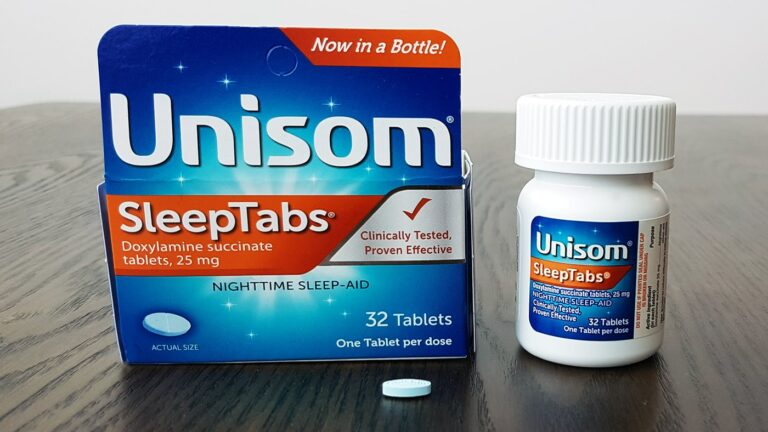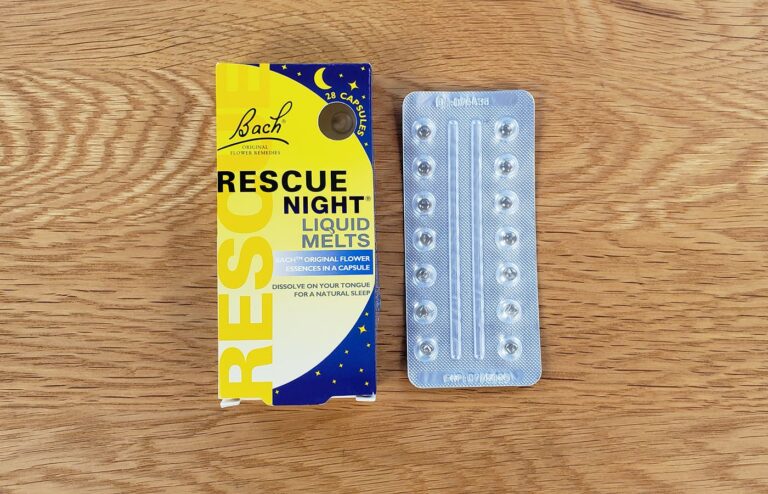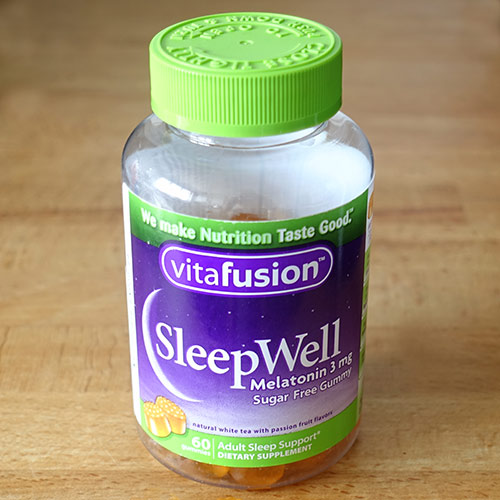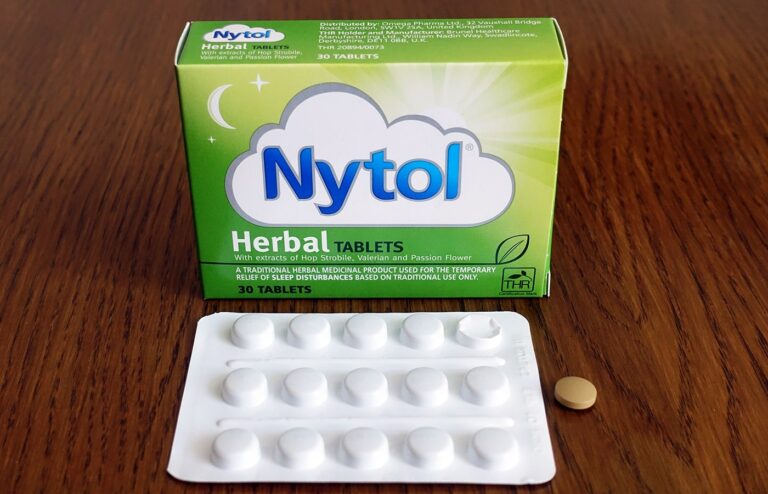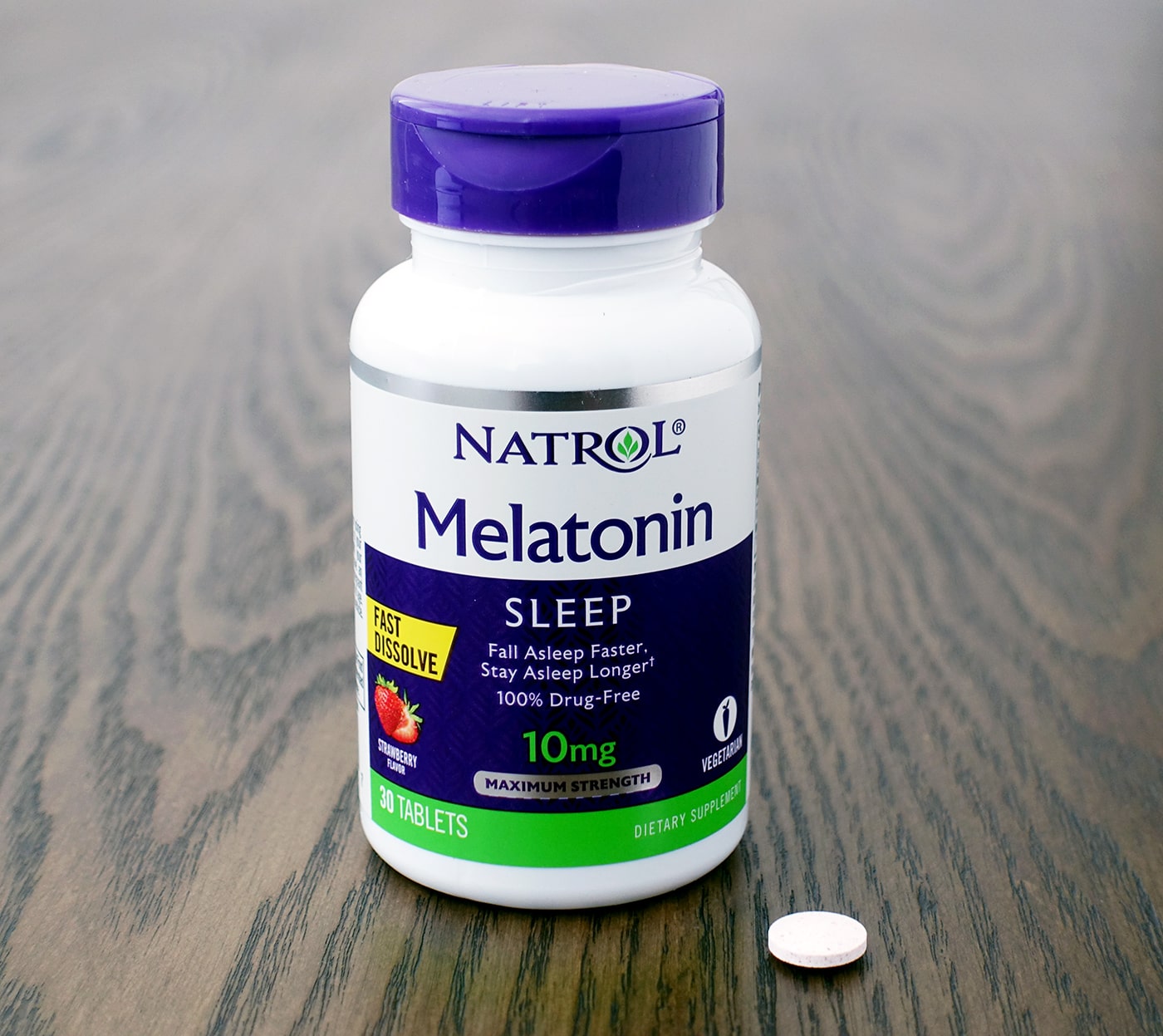
Disclosure: This review is based on my personal experience of Natrol melatonin, and you may have a different experience. Please discuss taking any new sleep aid with a healthcare professional rather than only relying on online sources.
Updates: I first wrote this article in 2019 when I took the Natrol. The most recent update in 2024 was to remove the warnings and side effects listed when I bought it as they may have changed over time.
My experience with Natrol
I’ve been using the Natrol melatonin sleep aid for the past month. It’s not available over the counter in the United Kingdom, so I wanted to see how well it would work for me. The photo above is of the one I bought and took.
I’ve had good results with other sleep aids containing melatonin before, such as Vitafusion SleepWell. I felt that the Vitafusion helped me sleep better, and the side effects were minimal and tolerable, so I wanted to try melatonin again.
One thing I wasn’t sure about was the dosage. Natrol was available in 1, 3, 5, or 10mg when I bought mine online.
The UK National Health Service website suggests that for short-term sleep problems in adults, ‘The usual dose is one 2mg slow release tablet taken 1 to 2 hours before bedtime.’ It also says that the maximum dose for some groups of people is 10mg – with a specialist prescription.
I was surprised that 10mg is easily available online in the United States, and decided to try it since I seemed to have tolerated lower doses of other melatonin brands okay.
A fast-dissolving tablet with a sweet taste
Starting with the taste and type of pill, the Natrol tablets I took are quite small and fast-dissolving, which is much easier than swallowing a large pill in my experience.
They do have a slightly sugary taste, so I found it’s best to take them before brushing your teeth.
Judging how well it works
The way I judge how well a sleep aid works is admittedly quite subjective. Other than spotting obvious side effects like headaches or grogginess, or having clearly significant changes to my sleep times and pattern, the effects can be subtle and hard to work out if it’s the sleep aid, a placebo or something else entirely.
So I use a written sleep diary to note how I slept and felt the next day, along with a couple of sleep trackers to back up my manual data.
Round one: melatonin versus jet lag
I actually bought the Natrol in the United States, but only started taking it after returning to England, as I was interested to see if it would help with the Jet Lag.
I feel that I had good results for the first five days. I felt that I managed to realign my sleep pattern to the local time reasonably quickly, even if it took me a while to drop off during the first two nights.
Although it didn’t exactly knock me out, I still got enough sleep to function fine. What I liked was that the mornings weren’t too bad either. I had no noticeable side effects from the melatonin and seemed to get into the swing of things with some help from a strong coffee.
So all in all, the jet lag wasn’t as bad as it has been in past trips, though was definitely still there to a certain extent. The main problem, however, is that I’m comparing two different trips and there could have been various other factors contributing to how quickly I got over the jet lag. Still, I was pleased with how the week went.
The following weeks
Although I typically sleep reasonably well most nights, over the course of a month I will usually have a few nights of worse sleep, especially if I’m unable to do some physical exercise.
While taking the Natrol, both my manual sleep diary and sleep trackers showed a decent month of sleep. There was only one night when I slept particularly badly, which may have been because I had a very stressful day.
It’s not that I slept for significantly longer than my usual good nights, just that there were more good nights and with less wakings. Even on a couple of nights when I visited family or friends – a time when I usually struggle to sleep well – I was managing to get a reasonable night’s sleep.
No noticeable side effects for me
Some sleep aids, particularly antihistamines, tend to result in side effects the next day for me, such as a fuzzy head. But I had none of that, or any other side effects that I noticed, while taking Natrol melatonin.
What’s strange is that even with other melatonin brands I’ve tried – and at a lower dosage – there have been side effects, such as disorientation when waking in the night. But I just didn’t get any of that this time.
My conclusion
I felt that the Natrol may have helped me overcome jet lag a little easier than normal, which was a positive.
Over the next few weeks, I fell asleep on average faster than I often do, had less bad nights’ sleep than my monthly average and woke less in the night.
I didn’t sleep significantly longer overall than usual, which I think is important to note. It’s more the case that I just had less bad nights, and less time lying in bed feeling frustrated that I wasn’t asleep yet.
I don’t plan on taking Natrol on an ongoing basis, but if I did take it again, I think I would reduce the dosage to 1mg or 3mg.
Despite my own positive experience, it’s important to remember that it might not work effectively for everyone, and some people might have side effects from the melatonin.
What evidence is there that Natrol melatonin tablets work?
I couldn’t find any specific clinical trials for Natrol sleep aids. However, this isn’t unusual for over the counter sleep aids in the United States. They aren’t required to undergo such rigorous testing as they are regulated as supplements rather than medications.
So, assuming the ingredients are accurate, it’s useful to consider the evidence that other melatonin supplements work for insomnia.
There has been a lot of research done, and much more will probably be done in the future considering the wide range of possible uses for melatonin supplements that are being explored.
Where sleep is concerned, the impression I get from my own reading is that melatonin may help some people with certain sleep problems.
The Mayo Clinic says the following:
Research suggests that melatonin might slightly reduce the time it takes to fall asleep, but its effects on sleep quality and total sleep time aren’t clear.
The National Center for Complementary and Integrative Health in the United States indicates that there is evidence melatonin can help in some situations, such as jet lag and delayed sleep phase disorder, but not for chronic insomnia.
A review of 12 studies in 2017 found evidence that melatonin helps reduce the time taken to fall asleep in primary insomnia and delayed sleep phase syndrome. The study author reported:
These findings highlight the potential importance of melatonin in treating certain first degree sleep disorders.
And evidence seems to suggest that that taking melatonin doesn’t stop your body’s natural production. One caveat, of course, is that the researchers involved in these studies usually say that more research is needed into the long-term effects.
Further information
Who makes it?
Natrol is an American company based in California. They have been manufacturing vitamins, minerals and supplements since the 1980s. You can find out more about the company at natrol.com (not a paid link).
Ingredients
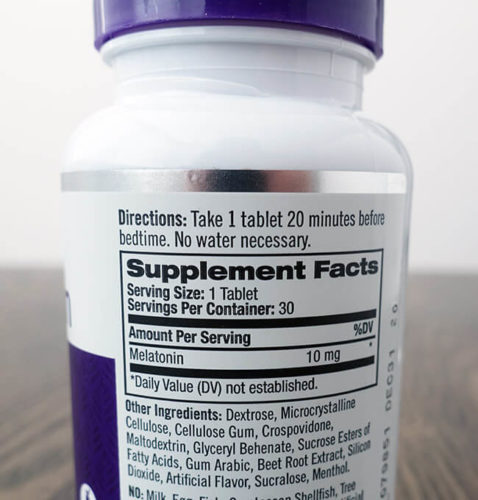
The active ingredient listed on the bottle I bought is:
- Melatonin 10mg (the active ingredient)
The other ingredients are:
- Dextrose
- Microcrystalline cellulose
- Cellulose gum
- Crospovidone
- Maltodextrin
- Glyceryl behenate
- Sucrose esters of fatty acids
- Gum arabic
- Beet root extract
- Silicon dioxide
- Artificial flavor
- Sucralose
- Menthol
Warnings and side effects
The bottle I bought didn’t have any potential side effects listed, but the Natrol website (Natrol.com) does list some and is worth checking.
More importantly, it’s wise to consult your own doctor or healthcare provider to check if melatonin is safe and appropriate for you to take. They can give you personalised advice and also advise on the dosage, duration, and possible side effects to look out for.
Further reading
The NHS website lists possible side effects and what to do if you feel unwell.
WebMD has an extensive section on melatonin, including side effects and precautions.
John Hopkins Medicine has an overview of using melatonin for insomnia.
You might also like to read my sleep hygiene article in which I share a range of sleep tips.

